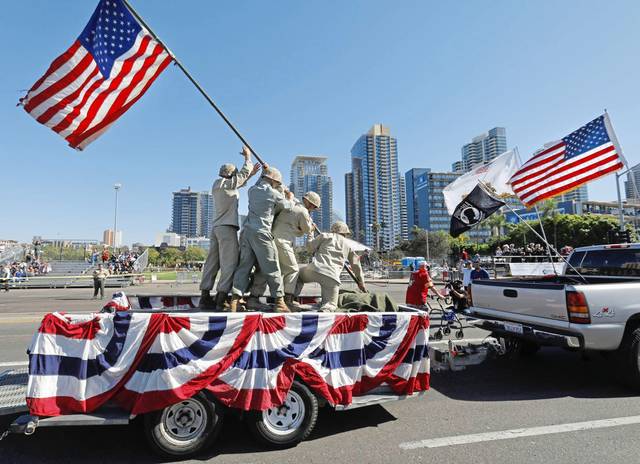

A veteran with a fever and hacking cough that suggest a possible coronavirus infection tries to make a doctor’s appointment, only to be turned away by a receptionist who personally decides the would-be patient can’t see a physician. A former service member and sexual assault survivor at risk of suicide is denied access to mental health services by a bureaucratic gatekeeper stationed at the therapist’s office.
These are two of thousands of examples of veterans seeking the Veterans Affairs health care they’re legally entitled to — and wrongly being refused it. This is because of a pervasive misunderstanding and misapplication of the rules regarding other-than- honorable discharges.
This refusal is based on what is known as a “bad paper” designation, which can be based on minor misconduct such as being late to morning formation, showing disrespect to a superior or one-time drug use.
Being turned away is an institutional shortcoming that can be remedied easily — not by an act of Congress, or time-consuming changes to federal rules, but instead through administrative corrective steps that can be taken at the Department of Veterans Affairs.
An estimated 400,000 former service members are at risk of wrongly being denied VA health care and other benefits, according to a 2020 study by OutVets, a group of LGBTQ+ military veterans. It showed that gay and lesbian veterans and victims of military sexual assault are disproportionately at risk. So are veterans who served in the Navy or Marines, the wars in Iraq and Afghanistan, and those with post-traumatic stress disorder.
Here’s how the denial of care happens. Veterans who receive other-than-honorable discharges — a designation applied to roughly 7% of them since 1980 — still can qualify for VA health care and legally are entitled to individualized eligibility reviews and written notification of the determination.
Though that group includes some with bad conduct and dishonorable discharges, which can involve the commission of serious crimes while in uniform, more than 80% of them bear the burden of an administrative determination made without full due process.
The majority of “bad paper” veterans includes many of the estimated 100,000 LGBTQ service members discharged for purported misconduct between the end of World War II and the 2011 official repeal of the “don’t ask, don’t tell” policy that banned gay people from openly serving in the military.
Though there should be consequences for military misconduct, they shouldn’t include an across-the-board denial of health care — especially if a person has a service-related disability or is dealing with the effects of military sexual trauma or PTSD.
Yet, the OutVets study found VA gatekeepers in more than a dozen states — including California, Florida, Missouri, New York, Pennsylvania and Texas — incorrectly told “bad paper” veterans they were ineligible for benefits.
A new report by Legal Services Corp.’s Veterans Task Force further documents the lingering stain of “bad paper” on veterans. In response to the OutVets report, VA officials described an “updated enrollment system” that would better identify and track those with other-than-honorable discharges.
Such promises aren’t enough. The VA must also work to overhaul the training, guidance and oversight of its staff and improve how it communicates with veterans. Its outreach to those who have been unlawfully refused care should include social media campaigns and easy-to-understand letters that outline who is eligible to receive care.
Military service members dedicate their lives to defending our country. After they return home, they shouldn’t have to fight for access to justice and basic benefits earned from their selfless service.
Dana Montalto is a clinical instructor at Harvard Law School’s Veterans Legal Clinic, which published the OutVets report “Turned Away” with Veterans Legal Services.